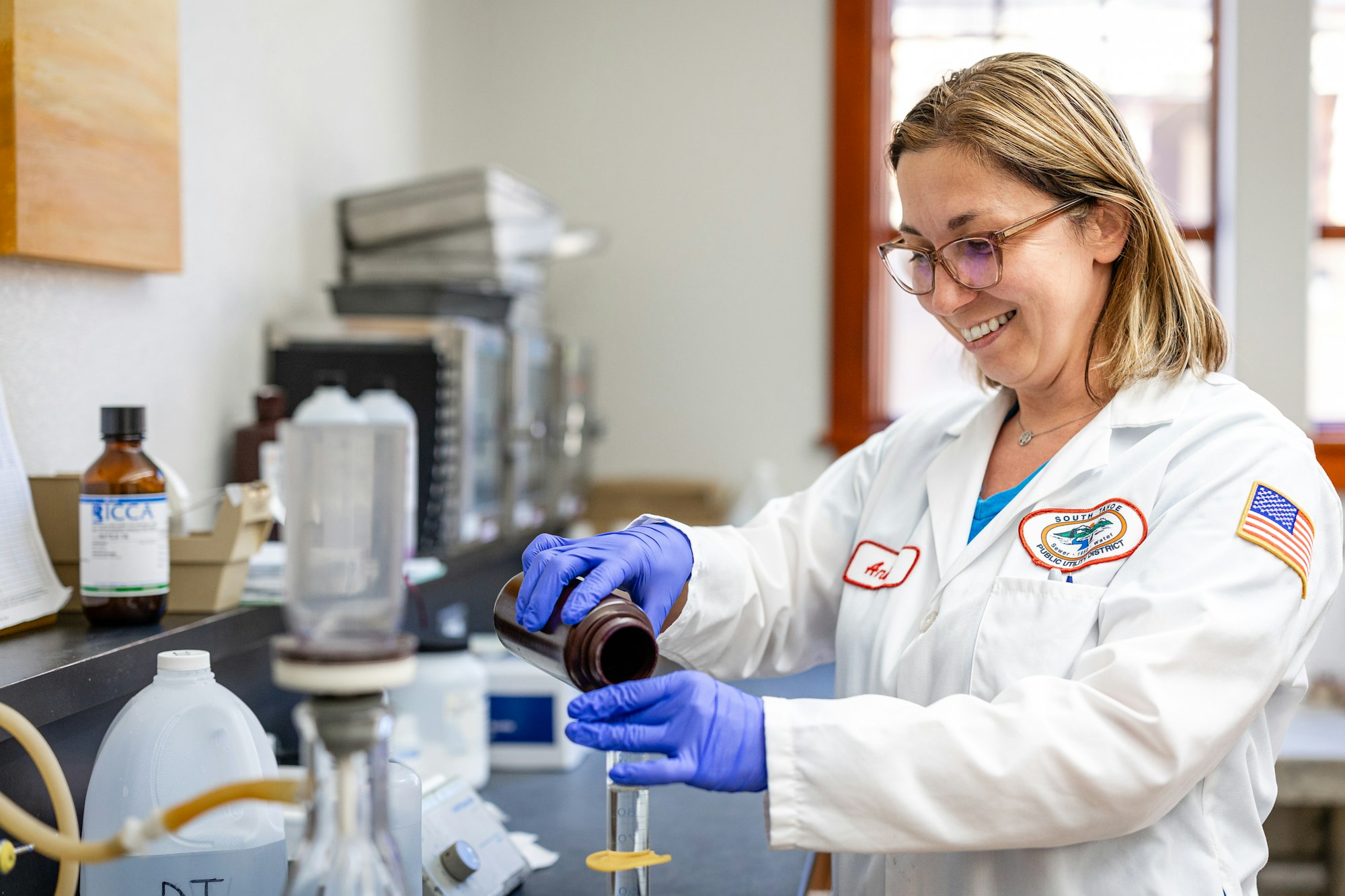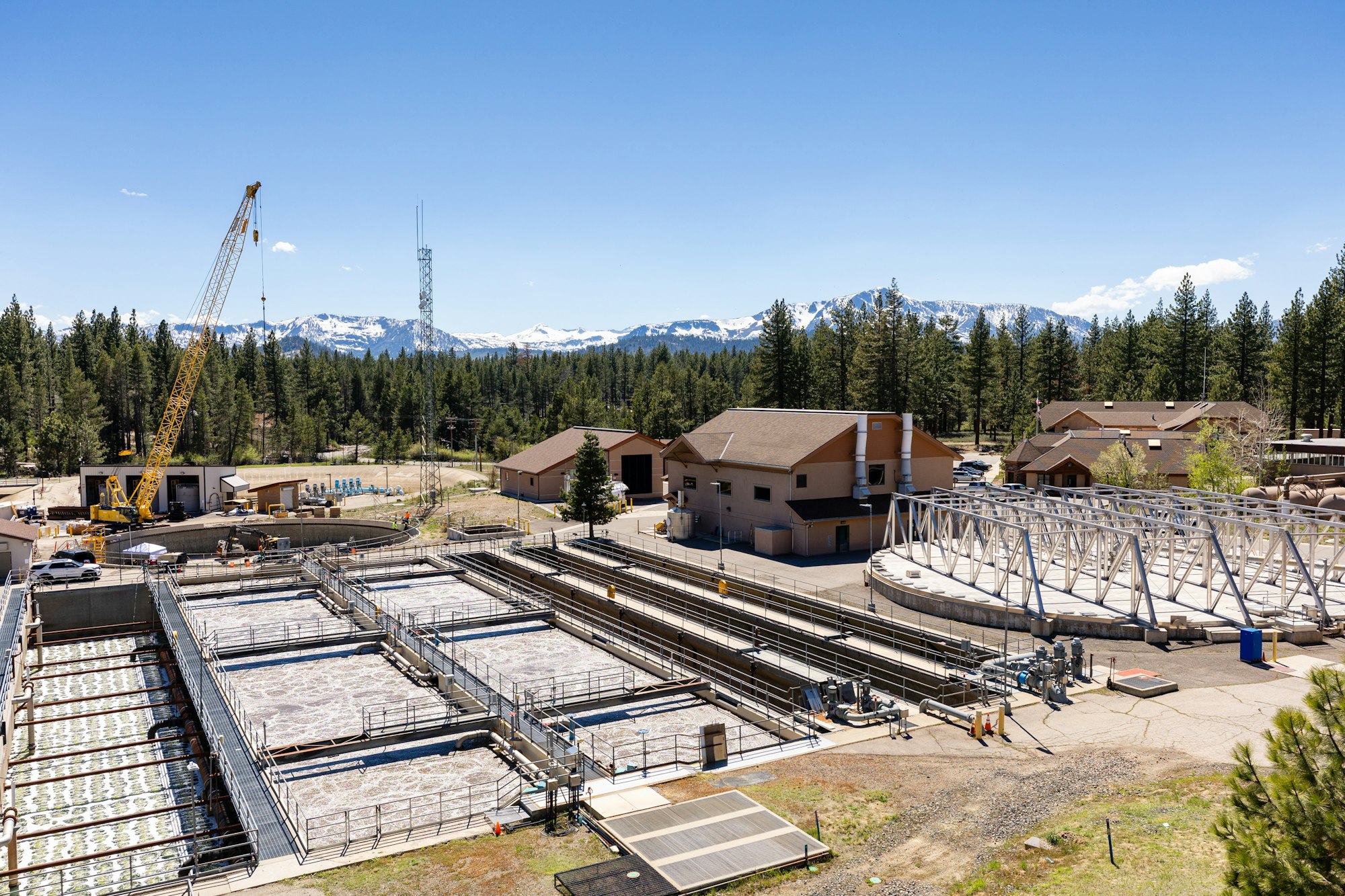Laboratory
The Laboratory analyzes drinking water, wastewater, streams, ground waters, reservoirs, and soils. The Lab’s water quality results are used to determine compliance with State and Federal water reclamation criteria, Safe Drinking Water requirements and other regulations. Lab results are used by District staff to determine treatment efficiency and needs. The Lab’s activities are divided into three main categories: wastewater, drinking water, and Alpine County monitoring (where the recycled wastewater is applied for irrigation).
Drinking Water
The purpose of laboratory analysis of drinking water is to assess its safety, quality, and compliance with legal requirements and health standards. Testing is conducted to detect contaminants such as bacteria, chemicals, heavy metals, and other harmful substances that could pose health risks. Regular water testing helps identify potential problems, ensuring public health protection, and supporting regulatory compliance.
The Lab collects 25-40 drinking water samples each week from wells, storage tanks, dedicated sample taps and customers' homes. These samples are tested for bacteria, chlorine and temperature to assure that only safe high quality water is delivered to our customers.

Our wells are sampled annually. Our lab goes above and beyond required testing to ensure our community has safe drinking water. These tests sample for minerals, bacteria, metals such as uranium and radon, and over 60 volatile organic chemicals (such as chloroform, MTBE, and benzene). Find water quality results on the Water Quality Reports page (see the right side of this page for more information).
Why add chlorine? Chlorine is added to drinking water as a disinfectant to kill harmful bacteria and other pathogens that may be present.
Our laboratory also processes samples from small water systems in El Dorado, Alpine and Mono counties for coliforms, nitrates, and several other chemical tests. A fee is charged to cover all costs for these services.
Wastewater Treatment Plant
The purpose of laboratory analysis of wastewater is to ensure effective treatment and evaluate the quality of the water before it is recycled and discharged into the environment. Analysis identifies potential pollutants such as organic matter, heavy metals, pathogens, and nutrients that could negatively impact ecosystems, public health, and water quality.

The laboratory assesses key parameters like pH, biological oxygen demand (BOD), solids, nutrients, and microbial contaminants to ensure proper treatment and compliance with environmental regulations.
Each day samples are taken of the influent (wastewater that flows into the plant), effluent (treated wastewater that flows out of the plant), and the treatment processes. Close to 2,000 samples are collected and 17,000 tests run each year to assure the recycled water meets all requirements. The treatment plant has been in 100% compliance since 1995.
Recycled Water

The District exports recycled water to Diamond Valley Ranch, located in Alpine County. We have a comprehensive monitoring program in place to assess the impacts of using recycled water for irrigating ranchlands. This includes extensive monitoring of surrounding groundwater, surface water, and soils. Soil and well water samples are collected from all ranches receiving recycled water for irrigation and stream samples are taken from the West Fork Carson River—upstream, midstream, and downstream of the irrigated areas. The District installed special monitoring wells in locations that could quickly detect groundwater impacts from recycled water. We also test sites outside the recycled water area as study controls. Sample sites and types of analyses are selected in collaboration with the Lahontan Regional Water Quality Control Board, the National Resources Conservation Service, and District engineers.
Close to 10,000 tests are performed each year on water and soil samples surrounding our recycled water operations. The tests include nutrients, minerals, solids, metals, and bacteria.
Look for the Lab's white truck. You'll see the technicians getting samples from streams, fields, schools, stores, and restaurants throughout South Lake Tahoe and eastern Alpine County. Stop by if you have any questions.
For more information, call us at 530-544-6474, ext 6231 or e-mail us with your questions

